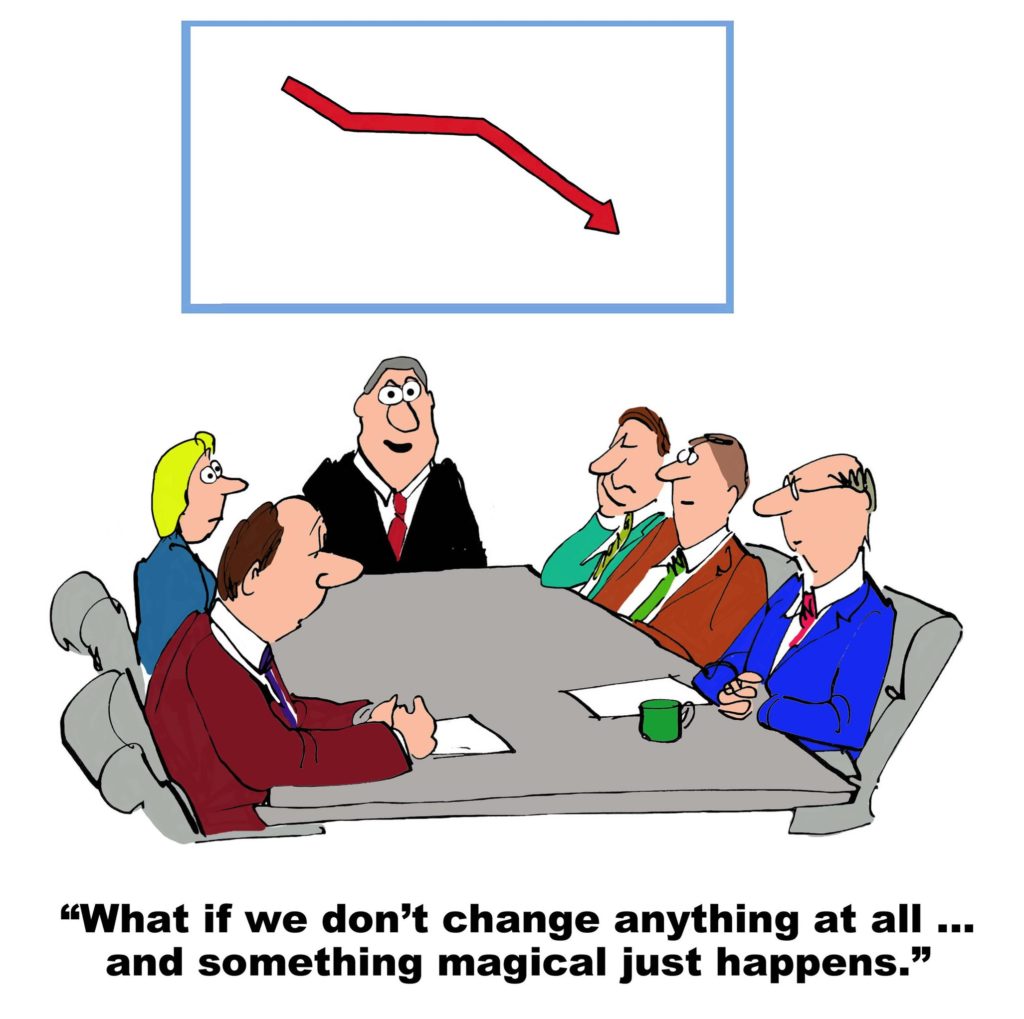 Have you ever had someone give you push back when you were trying to implement something new? Have you been ever questioned about a change you were trying to make? Have you asked yourself why the change needs to occur?
Have you ever had someone give you push back when you were trying to implement something new? Have you been ever questioned about a change you were trying to make? Have you asked yourself why the change needs to occur?
Pushback or resistance to change can show up in many ways. A person can get defensive in trying to get their point. Whereas another person, may choose to be defiant and not do what they have been directed to do. Individuals may procrastinate in moving forward with their part of the change and do things last-minute or miss deadlines completely thus sabotaging the change.
Even though push back and resistance to change can be frustrating, it is important to take a step back and look at the bigger picture. Ask yourself:
- Why might this person be challenging or questioning me?
- Is there value in what they are saying?
- What is the impact that they see that I may not?
Sometimes we think that the person who’s playing the devil’s advocate is resisting change but what they’re really doing is looking at the situation from different angles. It is important to differentiate whether this person is pushing back or resisting change or are they providing you with valuable shifts in perspective?
Don’t get me wrong…
There are people who resist change. Instead of seeing change as progress, they see change as paralysis.

There are several reasons people resist change and the questions you should be asking yourself?
- Lack of Control When people feel that things are done “to them” rather than “with them”, they feel a loss of autonomy. Sometimes these changes are a surprise and the ideas of change are imposed upon them. What information do they need to feel more in control?
- Fear of Failure If you’ve ever been a part of a group or an organization with seasoned members, you may have heard the phrase “We’ve done it before and it didn’t work”. These individuals often operate from a place of fear – the fear of failure. They come from the premise that because it didn’t work before, it may not work again and they don’t want to fail. However, they fail to recognize that even though the concept has been used before, it didn’t mean that it was the right time, the right resources were available, or that organization has new people and has gone through a many new experiences. Just because something didn’t work before doesn’t mean, it might not work this time. Have you ever been a part of a group or organization like this? How did it make you feel? What opportunity can you offer for someone to try out their idea?
- Too Much Uncertainty Some people resist change because the uncertainty or the “not knowing” makes them feel uneasy and fearful. They do not want to step out of their comfort zone. When people make decisions out of fear, they move into a fight or flight mode and cannot think rationally. They also may make decisions hastily without thought.
We forget we wake up every day with a whole to-do list of different things not knowing what the entire outcome will be. Life would be pretty boring if we knew everything that was going to happen. There would be no excitement or anticipation. There may even be a lack of motivation or effort to pursue and achieve a certain result. What can you do to support your customers or the people you work with when faced with uncertainty?
- People are Creatures of Habit We fall into unconscious routines and are creatures of habit. We rely on structure of schedules, calendars, and processes to carry things out. One change can make everything feel completely different. When everything is different, we feel uncertainty creep in. What processes or structures will stay the same and what will be different? What will the “new normal” look like?
- Change creates work. People may not buy-into the change, thinking that the change is not necessary or change is occurring just for the sake of change. You may see this when people are suffering from change fatigue. They may be unwilling to learn one more thing. Change is happening so much that they do not have the time to adjust and adapt to the change because what they just changed is changing again so they start thinking, “What’s the point?” We need to be aware of having too many changes to a process. It may mean that the change needs to be thought through a bit more. What impact will the changes make? Are the changes being made necessary? What else do you need to consider when making the change?
“In times of change, learners inherit the earth, while the learned find themselves beautifully equipped to deal with a world that no longer exists.” – Eric Hoffer
Change represents progress and growth. If you are not changing and adapting to the world that is going on around you – you may get left behind.
“You must embrace change before change erases you.” – Rob Liano
Anchor yourself in the vision, mission, and core values that you live and abide by – this grounding exercise can provide you with the familiarity you seek. When you feel you are asked to do more with less and resources appear scarce, it is time to innovate and get creative. Do not hold back in trying to understand what is behind the push back. You may be too close to the situation to see the value in what the “devil’s advocate” is offering you.
Share the vision for what you want to achieve. Engage the individuals the change impacts whenever possible. The more they are part of the process, the less resistant they will be to implementing a change. Appreciate their thoughts, ideas, and suggestions by allowing them to share the possibilities. By gathering information from diverse groups and individuals, you strengthen the strategies for managing transition. Use push back and resistance to change as your opportunity to gain insight to the larger picture.
Have you experienced push back or resistance to change – share your story about what you did?
Share this article with someone who may be experiencing this right now!
DEBRA KASOWSKI, BScN CEC is an award-winning best-selling author, transformational speaker, blogger, and Certified Executive Coach. She has a heart of a teacher and is certified in Appreciative Inquiry and Emotional Intelligence. She is a contributing writer for Diversity Magazine and Fabulous at 50 magazine. Debra Kasowski International helps executives, entrepreneurs, and organizations boost their productivity, performance, and profits. It all starts with people and passion. www.deb
Leave a Reply